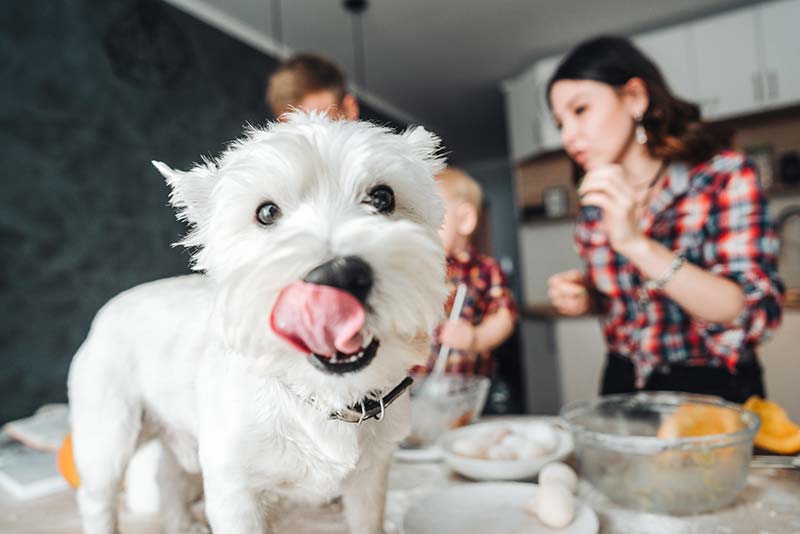
With the holidays fast approaching, you may be thinking of all the delicious foods you’ll be serving (and eating!). Most pet owners are also guilty of sharing the holiday feast with their pets. However, besides adding unnecessary fat and calories, feeding your pet table scraps can lead to a potentially fatal condition called pancreatitis.
Pancreatitis in pets seems to pop up like clock work each year around the holidays, but, in reality, pancreatitis can occur at any time. That’s why it’s important to know the facts and practice good pet safety habits year-round.
Pancreatitis in Pets
The pancreas is an organ located near the stomach and small intestine, and it’s responsible for producing insulin and enzymes that aid in your pet’s digestion. When the pancreas becomes inflamed, the condition is called pancreatitis. Acute pancreatitis can cause organ damage and is extremely painful for your pet.
Although there can be a variety of reasons why pancreatitis occurs, the ingestion of rich, fatty foods is a common cause. Animals seldom tolerate high fat foods, and even a nibble here and there can cause big problems.
Signs of Pancreatitis in Pets
Symptoms of pancreatitis in pets can be difficult to identify because they’re often non-specific. Dogs and cats can even present different symptoms. Regardless, pancreatitis is painful for your pet and must be treated immediately for the best outcome. If your pet is experiencing any of the following signs, please contact us right away:
- Anorexia (loss of appetite)
- Abdominal pain
- Recurrent vomiting
- Diarrhea
- Dehydration
- Lethargy
- Fever
- Hunched over appearance
Treatment
A diagnosis may be made using blood tests, x-rays, and ultrasound. The effective treatment of pancreatitis relies on an early diagnosis and aggressive supportive care, including:
- Hospitalization
- Intravenous fluids
- Pain medication
- Anti-nausea drugs
- Anti-vomiting drugs
- Antibiotics
- Withholding food
Unfortunately, severe pancreatitis may be fatal, even with veterinary intervention and treatment.
Prevention
The exact cause of pancreatitis in pets is still a mystery, but we do know that overweight pets are at an increased risk. For pets who’ve experienced a bout of pancreatitis in the past, even one bite of a fatty food can trigger another episode.
Besides obesity, other known risk factors include:
- High levels of fat in the blood
- Certain medications
- Trauma
- Infection
- Tumors
- Breed (miniature schnauzers, cocker spaniels, and miniature poodles are at increased risk)
Making sure your pet maintains a healthy weight and eliminating access to table scraps and the garbage (especially post-meal time) can go a long way toward preventing pancreatitis.
If you have any questions or concerns, please don’t hesitate to call the team at True Care Veterinary Hospital.

